People know German Shepherds for their strength, agility, and intelligence. To keep them healthy and thriving. It’s crucial to give them the best nutrition. Choosing the right dog food for your German Shepherd can make a big difference. It affects their well-being. In this guide, we’ll explore the key factors for selecting dog food. We’ll review some of the of the top brands. We’ll talk about homemade food. And, we’ll answer common questions about feeding German Shepherds.
Understanding the Nutritional Needs of German Shepherds
Knowing the exact diet needs of your German Shepherd is crucial. It’s key for their health and well-being. As a proud owner, providing the right nutrition ensures they lead a vibrant and active life. Let’s dive into the details. We will discuss how to meet the dietary needs of these great dogs.
Best Dog Food for German Shepherds have a reputation for being athletic and having high energy levels. They are famous for requiring a balanced diet. To support their active lifestyle, a balanced diet is imperative. They need a mix of good nutrients: protein, fats, carbs, vitamins, and minerals. These are vital for their best growth and development. Look for dog food made for large breeds. Make sure it meets AAFCO (Association of American Feed Control Officials) standards.
Protein
Protein is key for a German Shepherd’s diet. It helps muscles grow and heal. Opt for protein sources like chicken, beef, fish, and lamb. Ensure the protein content is at least 22% to 30% of their diet. Yet, always ask your vet. They will determine the ideal protein intake for your dog. It’s based on their age, weight, and activity level.
Healthy Fats
Add healthy fats to your German Shepherd’s diet. These include omega-3 and omega-6 fatty acids. These fats promote skin and coat health. They also bolster the immune system and aid cognitive development. Sources of healthy fats include salmon, flaxseed, and fish oil supplements.
Carbohydrates
Protein and fats are crucial. But, carbs give the energy for your German Shepherd’s daily activities. Choose complex carbohydrates, like sweet potatoes, brown rice, and oatmeal. They give lasting energy and aid digestion.
Vitamins and Minerals
Make sure your German Shepherd gets many vitamins and minerals. Optimal health requires them. They can add vitamin-rich foods to their diet. These foods include fruits and vegetables. Also, consider a high-quality multivitamin for large breed dogs. It should meet their specific needs.
Hydration
Never underestimate the importance of water. Always provide fresh, clean water. This keeps your German Shepherd hydrated, especially after exercise or in hot weather.
Understanding and meeting your German Shepherd’s nutritional needs is key. It’s vital to their health and longevity. A balanced diet is rich in protein, healthy fats, carbs, vitamins, and minerals. It can ensure your pet thrives. They will enjoy a fulfilling life by your side.
Key Considerations When Choosing Dog Food
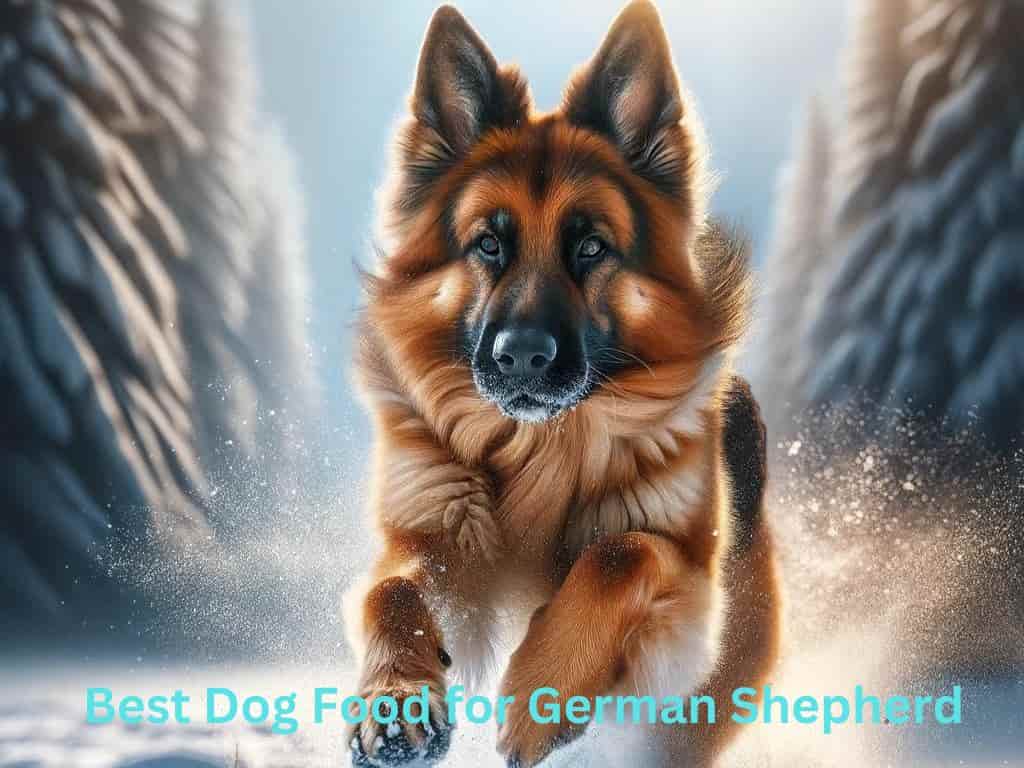
Selecting the right dog food is paramount to your pet’s health and well-being. Many options exist. You must consider many factors. This ensures you pick the best one for your pet. Let’s explore the key considerations when choosing dog food.
Quality Ingredients: Opt for dog food made with high-quality ingredients. Look for real meat as the primary ingredient, such as chicken, beef, or fish. Avoid products containing fillers, artificial preservatives, and additives. Choose brands known for their commitment to using wholesome, natural ingredients.
Life Stage and Size: Consider your dog’s life stage and size when selecting food. Puppies, adult dogs, seniors, and different breed sizes have varying nutritional requirements. Pick food for your dog that meets their age and size. This food supports their growth, development, and health.
Nutritional Balance:
Look for dog food with a balanced mix of protein, carbs, fats, vitamins, and minerals. Protein is crucial for muscle growth and repair, while carbohydrates provide energy. Healthy fats support skin and coat health. Essential vitamins and minerals aid well-being. Look for products that meet nutritional standards. Organizations like the AAFCO (Association of American Feed Control Officials) set the standards.
Allergies and Sensitivities:
Be mindful of any allergies or sensitivities your dog may have. Some dogs may not tolerate certain ingredients. These include grains, gluten, or specific proteins. If your dog shows signs of allergies or sensitivities, like itching or digestive or skin problems, then consider switching. Use a limited ingredient or hypoallergenic formula.
Veterinary Recommendations:
Consult with your veterinarian for personalized recommendations based on your dog’s unique needs. Your vet can offer valuable insights into your dog’s diet. This is especially true if they have specific health issues. They can also help you navigate the many options available. They can also help you make informed decisions about your dog’s nutrition.
Choosing the right dog food is a crucial aspect of responsible pet ownership. Consider factors. These include ingredient quality, life stage, balance, allergies, and vet advice. Doing so will ensure your furry friend gets the nourishment they need. This will help them thrive and live a healthy, happy life by your side.
Top Brands for Best Dog Food for German Shepherd

Choosing the best dog food for your German Shepherd is essential. It supports their special nutrition needs and health. With many brands available, it can be challenging to choose. Here are some top brands. They have a reputation for offering high-quality nutrition for German Shepherds.
Royal Canin German Shepherd Adult
Royal Canin is a trusted name in pet nutrition. They offer breed-specific formulas, like German Shepherd Adult. This formula is for the breed’s digestive health, joint health, and sensitive skin. It has the exact levels of protein, fiber, and antioxidants. They meet the needs of adult German Shepherds.
Eukanuba Breed Specific German Shepherd
Eukanuba offers a breed-specific formula crafted for German Shepherds. This formula has high-quality animal protein as the main ingredient. It supports muscle health and energy levels. It also has glucosamine and chondroitin sulfate. These are for joint support. It also has omega fatty acids. These are for healthy skin and coat.
Taste of the Wild High Prairie Grain-Free
People know Taste of the Wild for its grain-free recipes. They take inspiration from the diet of wild canines. The High Prairie formula has real buffalo and bison as the main protein sources. They provide the amino acids German Shepherds need to maintain muscle. It also contains fruits, vegetables, and probiotics for health and digestion.
Wellness Core Grain-Free Large Breed
Wellness Core offers a grain-free formula. It caters to the dietary needs of large breeds like German Shepherds. This recipe features deboned chicken and turkey. It also has glucosamine and chondroitin for joint health. It’s rich in protein. It’s also fortified with antioxidants, vitamins, and minerals. They help support vitality.
When choosing dog food for your German Shepherd, pick reputable brands. They are renowned for using quality ingredients and offering customized nutrition. Consider breed-specific formulas, protein content, joint support, and health benefits. Ensure your furry friend gets the best nutrition for a vibrant, active life.
Reviews of Specific Dog Food Products
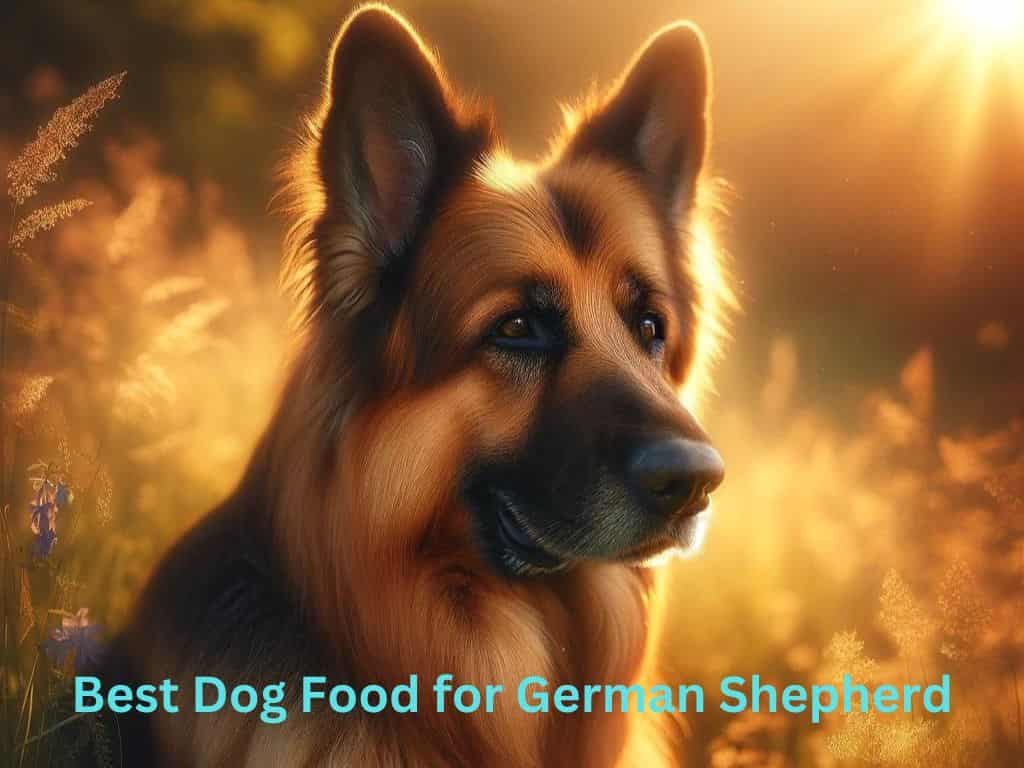
Finding the best dog food for your furry friend can be overwhelming. There are so many options. To help you decide, let’s explore reviews of specific dog food products. Their quality ingredients and nutritional benefits are well-known.
Blue Buffalo Life Protection Formula
Blue Buffalo is a well-known name in the pet food industry. Their Life Protection Formula offers a balanced diet for dogs of all breeds and sizes. Real meat is the first ingredient. This formula provides proteins for muscle growth and energy. It also contains wholesome grains, fruits, and vegetables for health and vitality. Many pet owners praise Blue Buffalo. They like its quality ingredients. They also notice it improves their dog’s coat, digestion, and energy.
Hill’s Science Diet Adult Large Breed
Hill’s Science Diet is a trusted brand. Veterinarians recommend it for its scientific recipes. They tailor their Adult Large Breed formula to meet the needs of big dogs like German Shepherds. It has high-quality proteins, antioxidants, and glucosamine. They support joint health, muscle maintenance, and well-being. Dog owners appreciate the clear improvements. Their dog’s mobility and coat condition get better after switching to this formula.
Orijen Original Grain-Free Dry Dog Food
Orijen is famous for its diets. They mimic a dog’s natural diet. Their Grain-Free formula features fresh, local ingredients. These include free-run chicken and turkey, wild-caught fish, and whole eggs. The formula contains protein and nutrient-rich organs. It supports lean muscle and health. Many pet owners report big improvements. They see them in their dog’s digestion, energy, and coat shine after switching to Orijen.
When choosing a dog food, think about the quality of its ingredients. Also, consider its nutritional benefits and customer reviews. The reviews highlight the positive experiences of pet owners. They have seen firsthand the benefits of feeding their dogs these specific products. Choose a dog food that fits your pet’s diet and preferences. It will make for a happy and healthy pet.
Homemade Dog Food Recipes
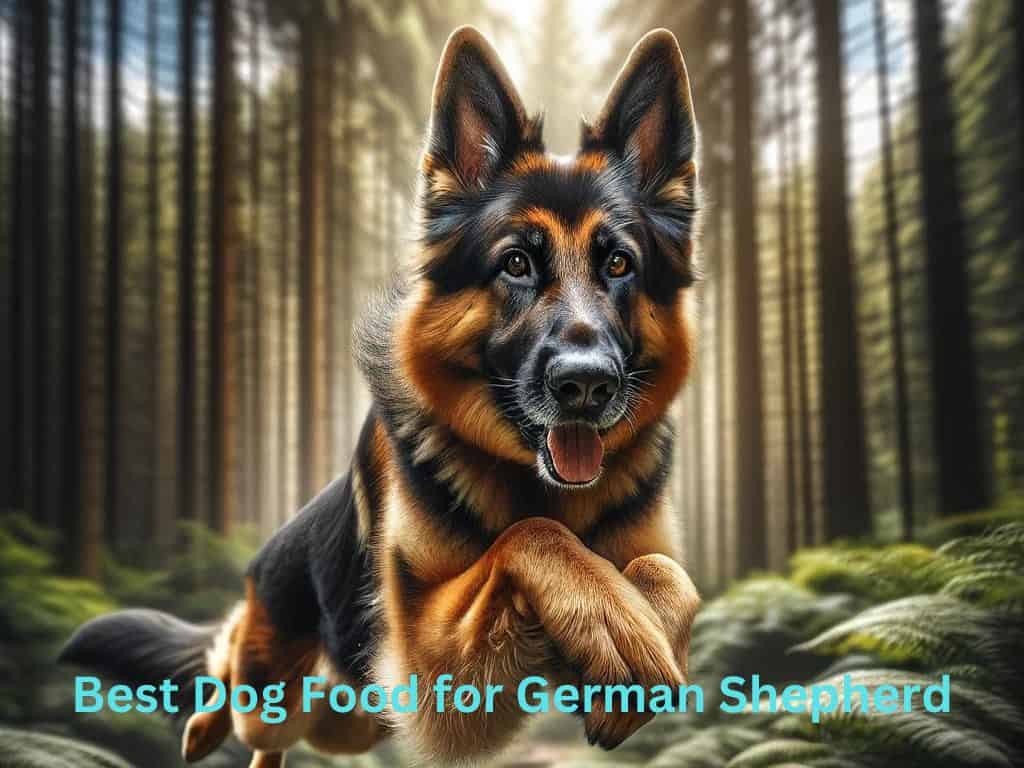
Preparing homemade dog food lets you ensure your furry friend gets nutritious meals. We can tailor the meals to their dietary needs and preferences. Here are some simple and tasty homemade dog food recipes. They will keep your dog healthy and happy.
- Chicken and Rice Recipe: Ingredients:
- 2 cups cooked chicken (boneless and skinless)
- 1 cup brown rice (cooked)
- 1 cup mixed vegetables (carrots, peas, and green beans)
- 1 tablespoon olive oil Instructions:
- Cook the chicken and shred it into bite-sized pieces.
- Cook the brown rice according to package instructions.
- Steam or boil the mixed vegetables until tender.
- In a large bowl, mix together the cooked chicken, rice, and vegetables.
- Drizzle olive oil over the mixture and stir until well combined.
- Allow the homemade dog food to cool before serving. Store any leftovers in the refrigerator for up to three days.
- Beef and Sweet Potato Recipe: Ingredients:
- 1 pound ground beef
- 2 sweet potatoes (peeled and diced)
- 1 cup spinach (chopped)
- 1 tablespoon coconut oil Instructions:
- In a large skillet, cook the ground beef over medium heat until browned and cooked through.
- Meanwhile, steam or boil the diced sweet potatoes until tender.
- Add the chopped spinach to the skillet with the cooked beef and sauté until wilted.
- Mix in the cooked sweet potatoes and coconut oil, stirring until well combined.
- Allow the homemade dog food to cool before serving. Refrigerate any leftovers for up to three days.
These recipes offer a healthy alternative to store-bought dog food. They let you control the quality and ingredients in your pet’s meals. Try different protein sources, grains, and vegetables. This will create a variety of nutritious meals. Your dog will love them. Always consult with your veterinarian before making significant changes to your pet’s diet.
Supplements for German Shepherds
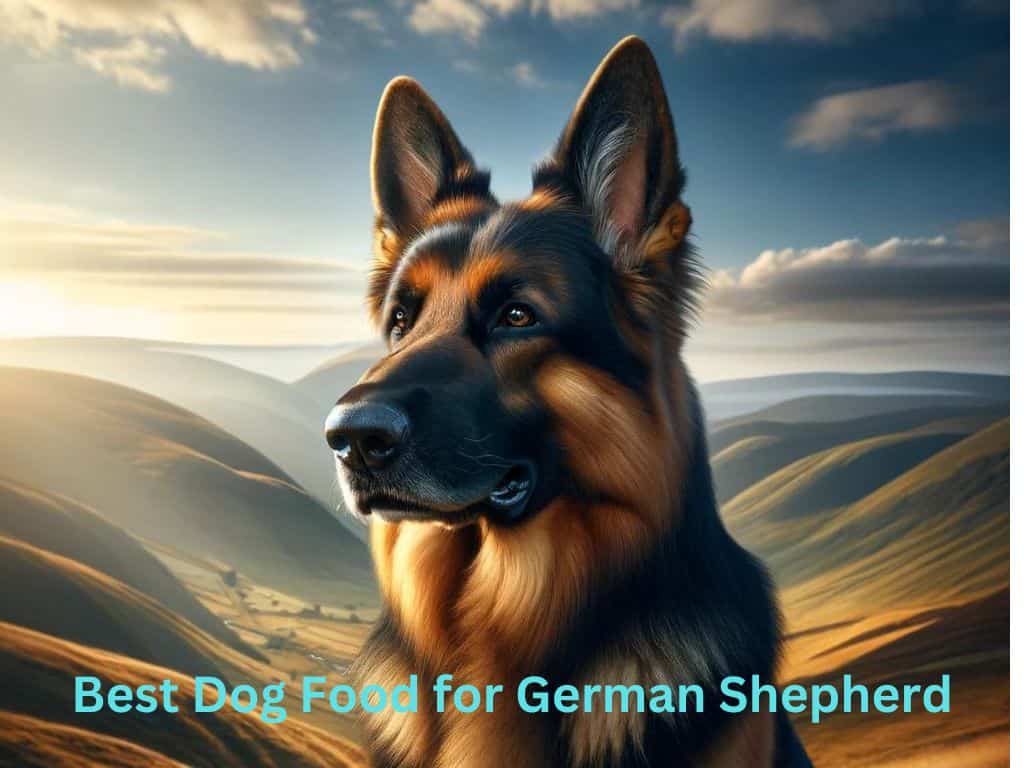
Supplements are crucial for German Shepherds. They support the dogs’ health. They do this by addressing their specific nutritional needs and promoting their vitality. Here are some essential supplements tailored to the unique requirements of German Shepherds.
1. Glucosamine and Chondroitin
German Shepherds are prone to joint issues. These include hip dysplasia and arthritis. These issues are due to their large size and active lifestyle. Glucosamine and chondroitin supplements can help keep joints healthy. They can also reduce pain and improve movement. These supplements support cartilage repair and reduce inflammation. They will help your German Shepherd stay agile and active for years.
2. Omega-3 Fatty Acids
Omega-3 fatty acids are in fish oil supplements. They help promote healthy skin and fur in German Shepherds. These fatty acids are essential. They help reduce itching, inflammation, and shedding. This results in a shiny, lustrous coat and relieved skin. Omega-3 supplements also help thinking and heart health. They have many benefits for your furry friend.
3. Probiotics
A healthy gut flora is key for German Shepherds. It aids in digestion and immune function. Probiotic supplements add good bacteria to the gut. This aids in nutrient absorption, cuts gut issues, and boosts immunity. Probiotics support a balanced gut microbiome. They help the health and well-being of German Shepherds.
4. Multivitamins
Adding a good multivitamin to your German Shepherd’s diet ensures they get the vitamins and minerals. These may be lacking in their regular food. Look for supplements made for large breeds. They give full support for their needs. Multivitamins help fill gaps in nutrition. They also support the immune system and promote health and vitality.
Give your German Shepherd these vital supplements daily. They can help with health issues. It can also promote their well-being. Ask your veterinarian for advice. They can help you pick the right supplements and dosages. The choice should be based on your dog’s age, health, and diet. With the right supplements, you can ensure your German Shepherd leads a happy life. They will also be healthy. It will be full of vitality and vigor.
Transitioning to a New Dog Food
Switching to a new dog food takes patience and careful planning. You must ensure your furry friend adjusts well while staying healthy. Here are some tips for a seamless transition:
1. Gradual Introduction:
Start by mixing the new food with your dog’s current food over the course of 7-10 days. Start with a bit of the new food mixed with the old. Then, increase the new food and decrease the old.
2. Monitor Digestive Health:
Keep an eye on your dog’s digestive health during the transition period. Look for signs of stomach upset. These include diarrhea, vomiting, or appetite changes. If issues arise, slow down the transition. Or, consult your veterinarian for help.
3. Stay Consistent:
Maintain consistency in feeding times and part sizes throughout the transition period. This helps your dog adjust to the new food more and reduces the likelihood of digestive upset.
4. Provide Adequate Hydration:
Make sure your dog has fresh, clean water at all times. This is especially important during the transition period. Hydration is crucial for supporting proper digestion and health.
5. Consider Dietary Needs:
Choose a new dog food that meets your dog’s specific dietary needs and preferences. It might be grain-free, limited ingredient, or for a specific life stage. Choose a food that fits your dog’s nutritional needs.
By following these tips, you can help your furry companion adjust . Take a gradual approach to switching to a new dog food. This will promote their optimal health and well-being. Be patient and observant. If needed, seek guidance from your vet.
FAQs About German Shepherd Nutrition
1. What should I feed my German Shepherd?
German Shepherds thrive on a balanced diet. It should have high-quality protein, healthy fats, carbs, vitamins, and minerals. Look for dog food made for large breeds or German Shepherds. This ensures it meets their nutritional needs.
2. How much should I feed my German Shepherd?
The amount of food your German Shepherd needs depends on factors. These include age, weight, activity, and metabolism. Ask your vet to find how much to feed your dog. This will keep them at a healthy weight and energy level.
3. Are there any foods that German Shepherds should avoid?
Some foods can harm German Shepherds. These include chocolate, grapes, raisins, onions, garlic, and fatty foods. Also, don’t feed your dog bones. They can splinter and cause choking or blockages.
4. Should I give my German Shepherd supplements?
A balanced diet should provide most of the nutrients your German Shepherd needs. But, supplements may help in some cases. Ask your vet. See if supplements like glucosamine, omega-3, or multivitamins are right for your dog.
5. How can I tell if my German Shepherd is getting the right nutrition?
Watching your German Shepherd’s health is the best way to see if they are getting enough food. Look for signs of a healthy coat, good energy levels, regular bowel movements, and a healthy weight. If you have any concerns, consult with your veterinarian for guidance.
Conclusion
Your German Shepherd’s health and well-being depend on the best dog food for them. You need to choose it. You need to understand their needs. You also need to consider key factors when choosing dog food. Then, you need to explore options. This way, you can ensure your German Shepherd gets the nutrition they need to thrive.

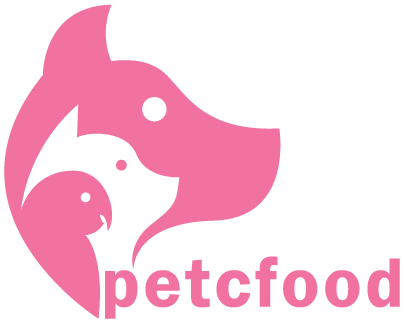
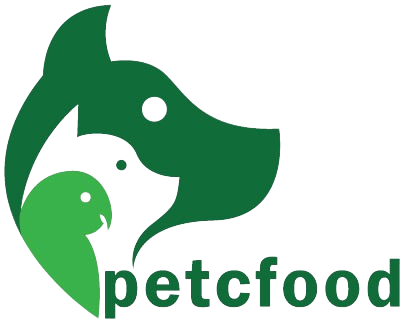












Leave a Review